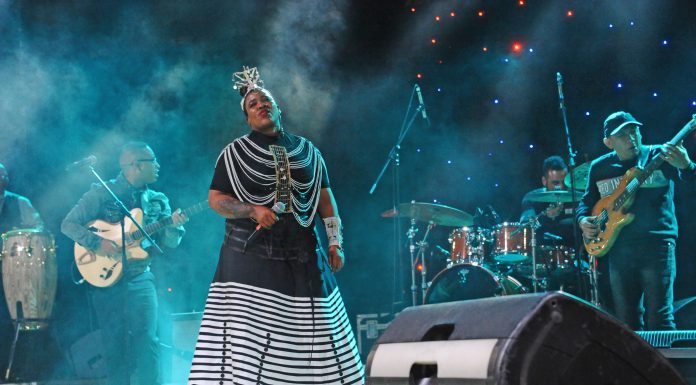Johannesburg – Music icons Yvonne Chaka Chaka and Thandiswa Mazwai have added their voices to calls for Die Stem to be expunged from the national anthem.
The EFF has been pushing for a revised national anthem, insisting that Die Stem, a portion of the apartheid government’s national anthem, represented apartheid history.
The debate about the national anthem resurfaced last week when EFF leader Julius Malema spoke on the outside chance that the EFF clinches a coalition deal with the ANC.
Talks between the two parties have since collapsed.
At the centre of the breakdown in talks was the EFF’s demands that Die Stem be removed from the national anthem.
Chaka Chaka said keeping Die Stem was an oversight in a post-apartheid era.

“For many, Die Stem represents oppression. The national anthem as it is, is a polarising song.
Personally, I know people who’ll sing Nkosi Sikelel’ iAfrika and not sing Die Stem,” she said.
“For the majority of this country, it’s a huge reminder of our dark past.
“It was an oversight to have Die Stem in the national anthem. At the time, no one thought it was an issue because black people were always willing to forgive and come to the party in the matter of the reconciliation agenda.”
Originally composed in 1897 by Enoch Sontonga, Nkosi Sikelel’iAfrika became a pan-African liberation song and versions of it were later adopted as the national anthems of five states in Africa including Tanzania, Zambia, Namibia and Zimbabwe after independence.
The current national anthem was adopted in 1997 and it incorporates extracts of Nkosi Sikelel’ iAfrika and Die Stem van Suid-Afrika.
Die Stem was the national anthem of South Africa from 1957 to 1994.
In 1994, after the first democratic elections, a proclamation issued by former president Nelson Mandela stated that South Africa would adopt two national anthems – Nkosi Sikelel’ iAfrika and Die Stem.
In October 1997, a combined version of Nkosi Sikelel’ iAfrika and Die Stem van Suid-Afrika (The Voice of South Africa) was adopted as the national anthem.
The anthem has been criticised for being one of the longest in the world.
More and more people, including civil society, have impressed on the authorities that it’s failed to foster unity.
“It hardly fosters unity. Our people, both black and white, don’t sing the whole anthem and that’s a real bummer.
“An occasion for singing the national anthem is a great moment of showing patriotism. The current song doesn’t encourage any of that,” said Chaka Chaka.
Mazwai said she was also in support of the idea of scrapping Die Stem. “Die Stem has always been the elephant in the room.
A huge reminder to the apartheid years, it’s become a monument to the nationalism of apartheid. That’s what it represents to me as someone who lived in the apartheid years .”
More than a decade ago, she spoke out against the incorporation of Die Stem .
“It’s a non-starter. The idea of combining both Nkosi Sikelel’ iAfrika and Die Stem was a non-starter. It takes people back, instead of taking them forward to reconciliation,” said Mazwai.
Follow @SundayWorldZA on Twitter and @sundayworldza on Instagram, or like our Facebook Page, Sunday World, by clicking here for the latest breaking news in South Africa. To Subscribe to Sunday World, click here.



